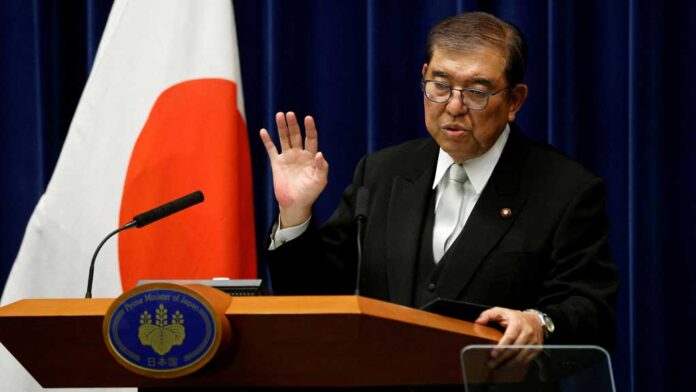On Tuesday, Japan’s government approved new targets to reduce the country’s greenhouse gas emissions through 2040, alongside an updated energy plan and industrial policy for the same period.
The measures, aimed at enhancing long-term policy stability for businesses, focus on promoting decarbonization, ensuring a reliable energy supply, and strengthening industrial capacity to drive economic growth.
Under the new climate policy, Japan aims to reduce its greenhouse gas emissions by 60% from 2013 levels by 2035 and by 73% by 2040, extending its original goal of a 46% reduction by 2030.
The emissions reduction target initially sparked calls for more significant cuts from experts and ruling coalition members, as Japan, the world’s fifth-largest carbon emitter, struggles to reduce its dependence on fossil fuels.
Although more than 80% of the 3,000 public comments favored a more ambitious target, the environment and industry ministries finalized the goal without changes, citing prior consultations with climate experts.
As part of global climate efforts, Japan plans to submit its updated target—known as a Nationally Determined Contribution (NDC) under the Paris Agreement—to the United Nations later this month.
The revised energy policy aims to have renewable energy make up 50% of Japan’s electricity mix by fiscal year 2040, with nuclear power contributing another 20% as the country seeks clean energy solutions while managing growing power demand.
Since the 2011 Fukushima disaster, Japanese utilities have struggled to restart nuclear reactors, limiting nuclear power to just 8.5% of Japan’s electricity supply in 2023.
The new energy plan removes the previous goal of minimizing reliance on nuclear and calls for the development of next-generation reactors.
Additionally, the cabinet approved a new national strategy that integrates decarbonization and industrial policy through 2040, aligning with both the emissions target and energy plan. The strategy aims to establish industrial clusters in areas abundant in renewable energy, nuclear power, and other low-carbon energy sources.
However, challenges are emerging in Japan’s policies, particularly in the domestic offshore wind market, which is crucial for renewable energy growth. Inflation and high costs have recently led Mitsubishi Corp to reconsider three domestic projects.
Moreover, the U.S. withdrawal from the Paris Agreement under President Donald Trump and its negative stance on renewable energy have further complicated global expansion efforts.



